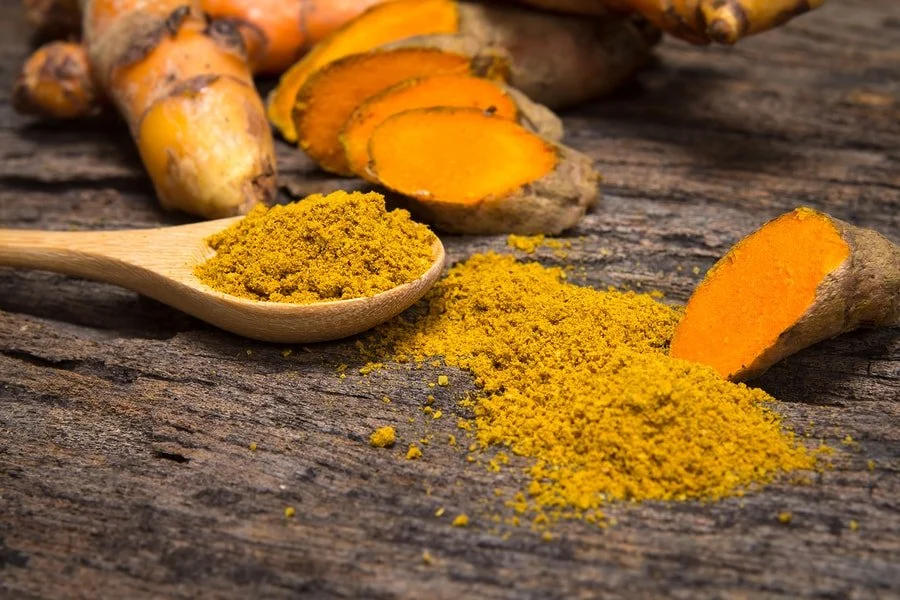Turmeric and Curcumin
The root of the plant Turmeric has been used for centuries in cooking and herbal remedies. Curcumin is a compound found in the roots and is known for being a powerful antioxidant.
Benefits
The Benefits of turmeric and curcumin are their potent anti-inflammatory and antioxidant properties.
In the right dose curcumin may be more effective than medicines such as ibuprofen. Due to these anti-inflammatory qualities,
curcumin may be a good long-term treatment for osteoarthritis.
Researchers are becoming aware of how long-term systemic inflammation can lead to serious diseases such as heart disease and diabetes,
therefore curcumin may be helpful in preventing these conditions.
Conditions that can be treated
Curcumin has been proven to reduce chemically active molecules which cause damage to the body cells. The damage that can be done by these cells
(known as free radicals) can drive cardiovascular disease, so curcumin can play a role in preventing and manging heart disease.
Curcumin can improve and boost levels of the brain hormone brain-derived neurotrophic factor (BDNF), which promotes the growth of new neurons.
This could potentially help treat depression. Curcumin can also help control inflammatory bowel disease, and ulcerative colitis.
Sources
Turmeric is the principal ingredient in curry and is very common in traditional
Asian food. Turmeric supplements can be bought. However, supplements provide a higher dosage of than can be found in food.
Therefore, if you wish to get the full benefits supplements are preferable.
The Mews practice offer nanocelle supplements including turmeric.

